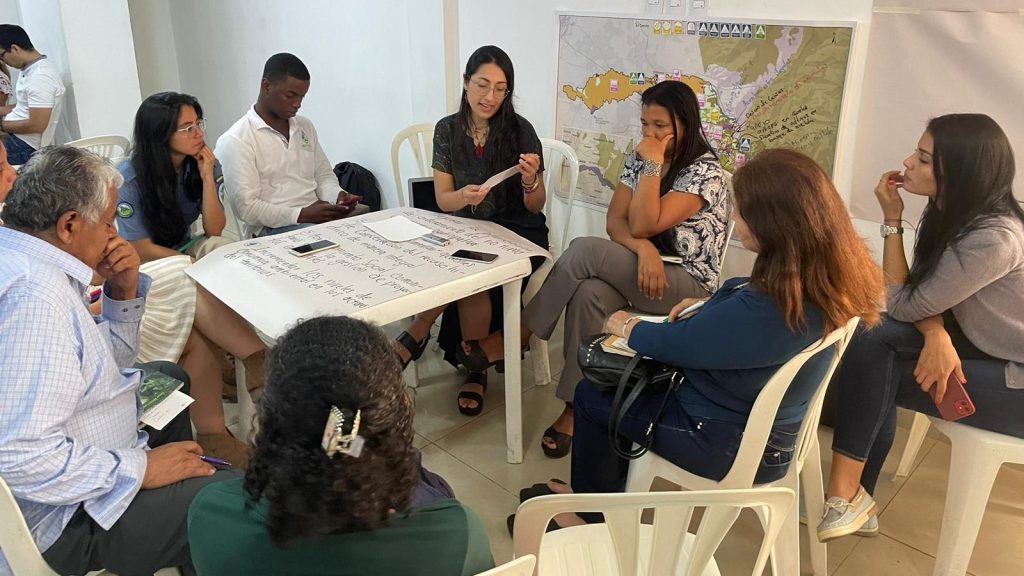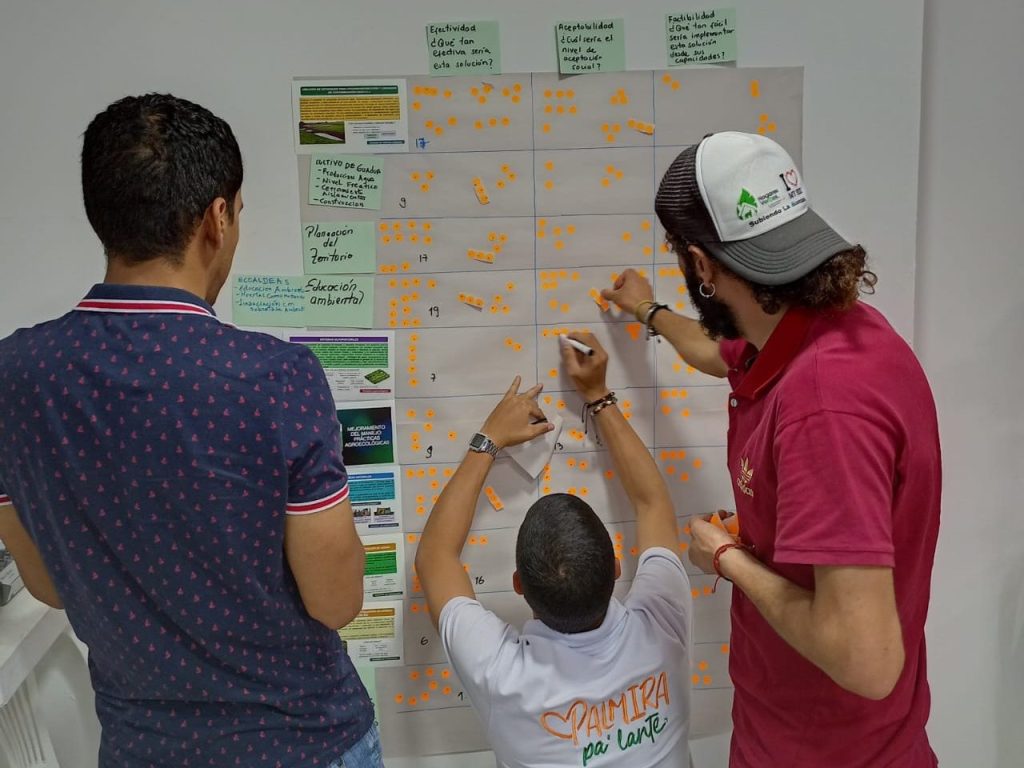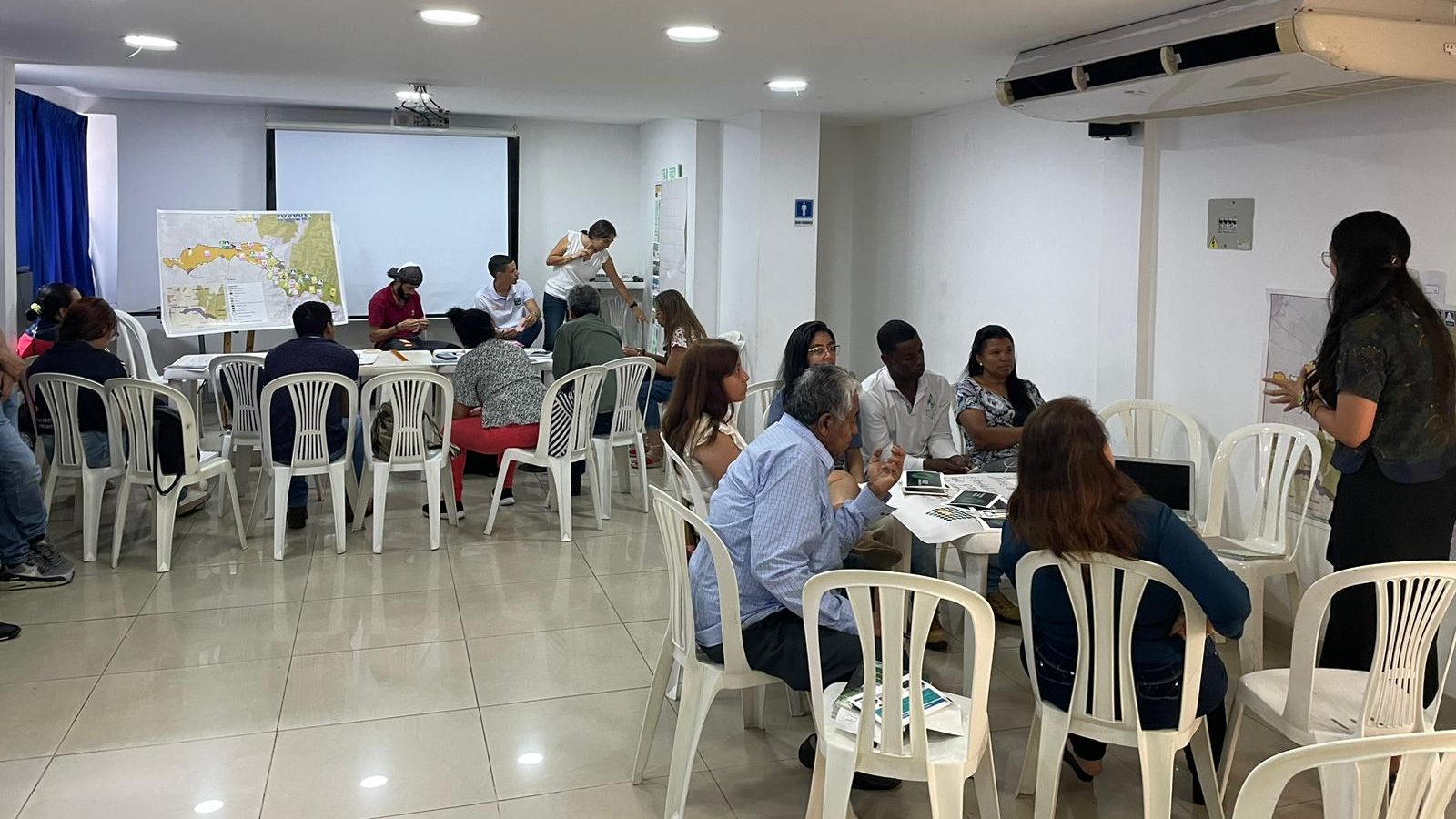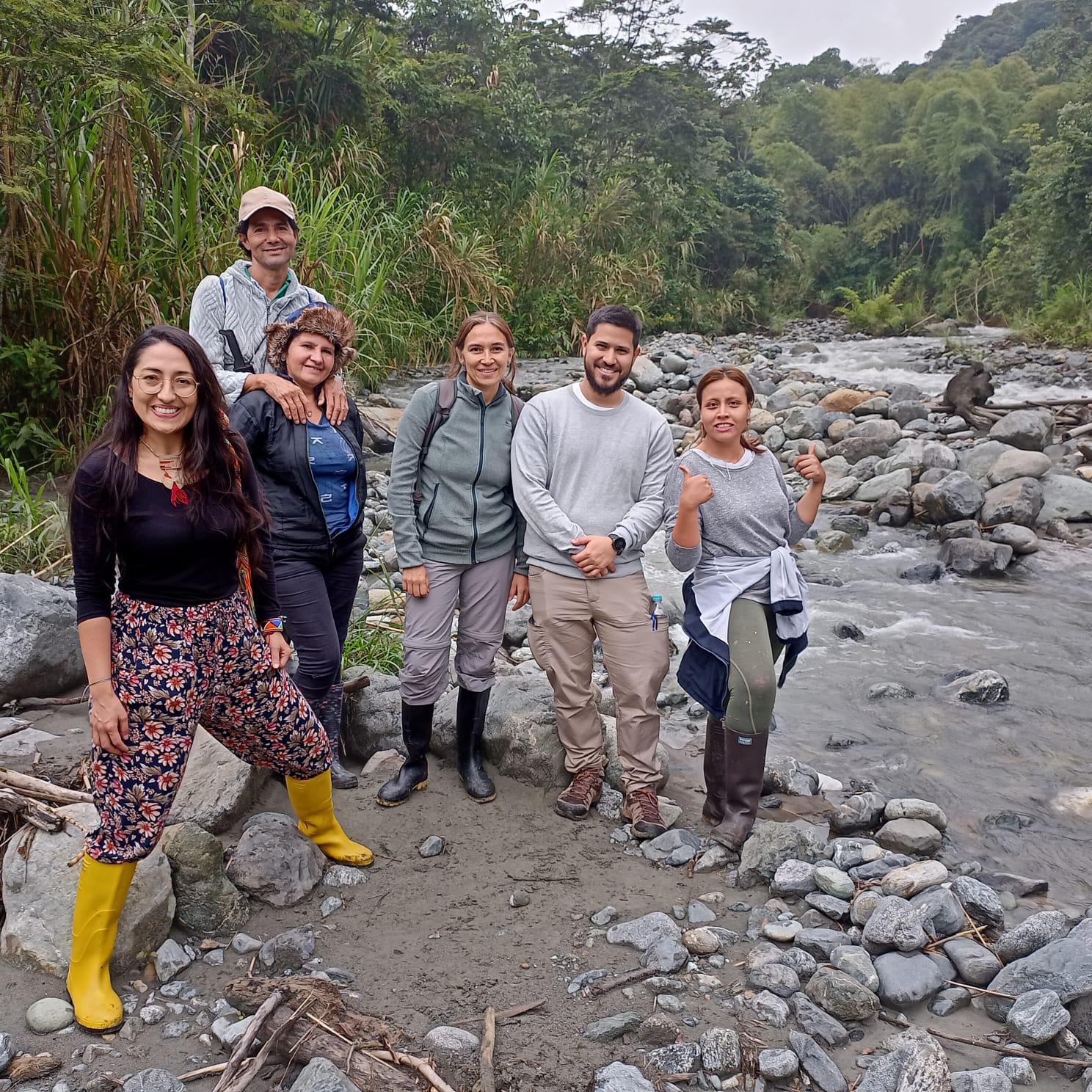More than 30 stakeholders representing local authorities and administration farmers, environmental groups, local industry groups, water managers, the energy sector and others, joined the 2nd REXUS Stakeholder Workshop in the Nima sub-basin pilot in Colombia on 28 March 2023, to jointly examine cross-cutting solutions to the area’s greatest challenges. The Nima sub-basin is blessed with extremely valuable ecosystems, including upstream paramo and andean ecosystems which boast rich biodiversity and endemic fauna and flora species, but environmental threats are already taking their toll.
A video to show the Nima sub-basin WEFE Nexus challenges
The REXUS project team, led by CIAT, went on a field trip to document NEXUS natural resource challenges and conduct interviews with stakeholders regarding the participatory process of REXUS, and what their expectations are to assist them with the design of sustainable solutions.
The 2nd workshop followed on from previous consultations of the REXUS Nima pilot leader, CIAT, with local authorities, and extensive interviews with local stakeholders, as well as the 1st Workshop where a participatory mapping of all Water-Energy-Food-Ecosystems Nexus interactions took place.

Business as Usual? Not An Option
During the 2nd workshop, led by Marcela Beltrán (Alliance Bioversity International-CIAT), Esteban Henao (AgriSat) and Trigal Velasquez (UNEP-WCMC), stakeholders were invited to consider the “Business as Usual Scenario” for the next 20 years. There was consensus across the board that current pressures are already unsustainable, and that horizontal measures are urgently needed to address the challenges of surface water availability, exacerbated by rising water demand, deforestation, and climate change; and surface water pollution, caused by activities like poultry and pig farming, sugar cane production, garbage disposal, as well as illegal settlements along the river.

Examining Nature-based Solutions
Stakeholders turned to the examination of Nature-based Solutions as a potential remedy. The first step was for stakeholders to jointly define the objectives that will address the area’s challenges. These included carrying out land planning and delineating agricultural zones; progressively phasing out conifer cultivation; and creating more protected zones in the highlands upstream. Then, 11 nature-based solutions which REXUS partner ETIFOR had pre-selected for their relevance to the Nima pilot case, were presented and discussed by stakeholders in 3 mixed groups. They were invited to rank them according to 3 criteria: Effectiveness (would they address the threat?); Acceptance (desired by stakeholders?); Feasibility (how easy to implement in terms of financial and time resources?).

Solutions that gathered a high added score along the previous 3 pillars included: Target ponds/wetland creation to trap sediment/pollution runoff in farmed landscape; Restore buffer vegetation lines on crop edges and riverbanks; Restore water sources and catchment areas. A lively discussion ensued, where participants wondered how nature-based solutions could be combined with other types of solutions, like installing Payment for Ecosystem Services Schemes (PES), Strengthening Capacities in accredited local community organisations, and promoting Environmental Education.
The end goal of the REXUS Stakeholder alliance in the Nima Pilot is to spell out the management measures that support local visions for a sustainable future, sharing these with local authorities to inform and assisting the development of the upcoming territorial and land use planning of Palmira municipality (POT in Spanish)

